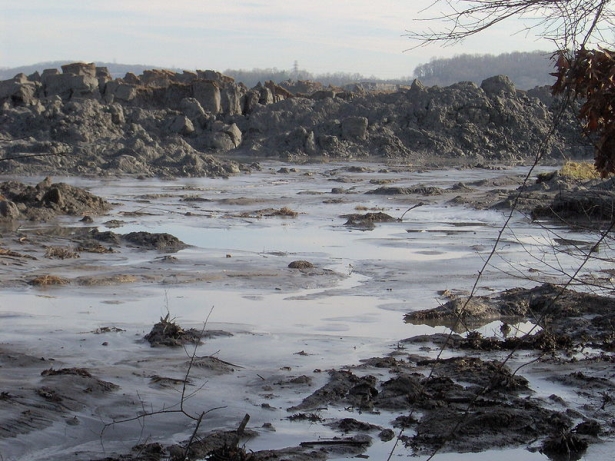The intro question for the first gathering of 350.org activists in Massachusetts early this month was, “How do you feel, personally, about climate change?” Having worked on the agenda, I should have been prepared — but it still stumped me.
 When I spoke, it was a distillation of five years of hard thinking and writing; truthful, but packaged. We are offered, I said, but two choices: blind optimism of the sort that Waxman-Markey cheerleaders purvey, or deep despair, the feeling one gets from most climate scientists. I prefer, I said, a resolute hope that comes only in accepting reality — the reason for my commitment to 350.org and Bill McKibben’s brand of honesty and humor. Having said this, I felt cheerful.
When I spoke, it was a distillation of five years of hard thinking and writing; truthful, but packaged. We are offered, I said, but two choices: blind optimism of the sort that Waxman-Markey cheerleaders purvey, or deep despair, the feeling one gets from most climate scientists. I prefer, I said, a resolute hope that comes only in accepting reality — the reason for my commitment to 350.org and Bill McKibben’s brand of honesty and humor. Having said this, I felt cheerful.
Two others sitting in our circle did a better job. Someone, I don’t remember who, said, “I’m surprised that no one has said they’re angry,” and immediately I too became angry.
Fred Small, Senior Minister at First Church Cambridge/Unitarian Universalist, a folksinger of tremendous talent who had us on our feet singing with all heart his new song “350,” spoke next. Fred said that between despair and hope lies resolve, but to live life well and with resolution, one must be both present and unattached, accepting that “I cannot solve this.” This struck me powerfully, and right away I felt calm and purposeful.
That’s how it goes. I careen from enervating despair, kicked off by anything from reading National Geographic to watching my son and his friends toss a ball around, to chipper optimism, when I learn that the Massachusetts Council of Churches is joining our 350.org campaign or one of my posts generates a flurry of responses, to black anger, when I see all our major organizations settling for the too-weak Waxman-Markey, or hear that my good friend David Merrill has to scrounge to keep globalwarmingsolution.org going. I do not have Fred’s balance, probably because I think I must try and solve this.
The idea of the JP Green House, the building itself, and Andrée are inseparable and came to me in reverse order. When I met Andrée, I was living in a two-room apartment in Jamaica Plain, writing all day, every day, about climate. I stopped only to pick up my then-seven-year-old, Eli, from school and started immediately after dropping him off. The “bright lines” project I was pursuing aimed to create free space for senior U.S. environmentalists to consider the stark realities of climate change and devise new strategies outside the boundaries of job description and organizational imperatives. With the clock ticking, and Jim Hansen moving the hands ahead, every minute seemed precious.
Andrée took guitar lessons with Ginger downstairs, and every once in awhile I’d be invited down to sit in, and in those fleeting moments of three-part harmony, guitar, banjo, and mandolin, I remembered what living is all about.
When it came time to move last year, we decided to buy a house together, letting our three boys (Eli, now 9, and Andrée’s Simon, 7, and Kuba, 11) get to know each other as neighbors. That thought led us to the old, abandoned store on Bourne and Catherine Streets — a challenge of the sort that I, with four building rehabs under my belt, felt confident taking on. As we drew near to home ownership, it seemed natural to check into Boston-area low-carbon demonstrations, and it was with some surprise we discovered there weren’t any. In fact, there are a mere handful of useful, accessible model green homes in the nation (and we know of only one that is low-/moderate-income). So we thought, “Why don’t we build one?”
And the JP Green House was born.
The challenge, it turned out, was larger than my construction experience. Instead of moving into a basement apartment in our new building as planned, Eli and I moved in with Andrée and her boys — and the boys have handled it better than the adults.
I do not have time to do what needs to be done on climate and the JP Green House and, like my friend David, I cannot finding funding or position to support work that desperately needs doing. The JP Green House represents all that is hopeful, outward, community-engaged, inspirational, kid-friendly, educational and, in the person of Andrée, loving.
Writing, organizing, and campaigning on my own time contributes little and displaces much, yet how can any thinking person at this moment do anything else?
I have no answer, but I know that I am not alone facing the dilemma. I find self-exposition faintly embarrassing, but these seem like troubles larger than mine alone, and I hope that we will hear from others with the same dilemma.
Watch Ken expound upon the climate crisis during a spring appearance at Tufts University — warning, f-bombs ahead!

